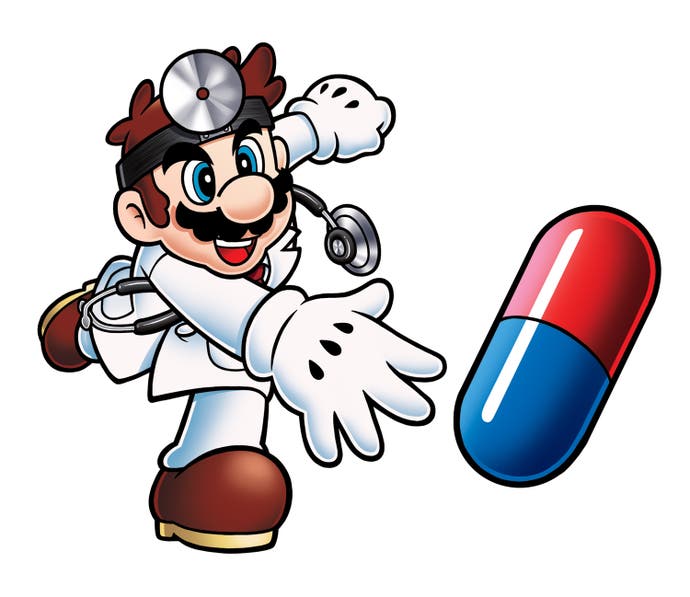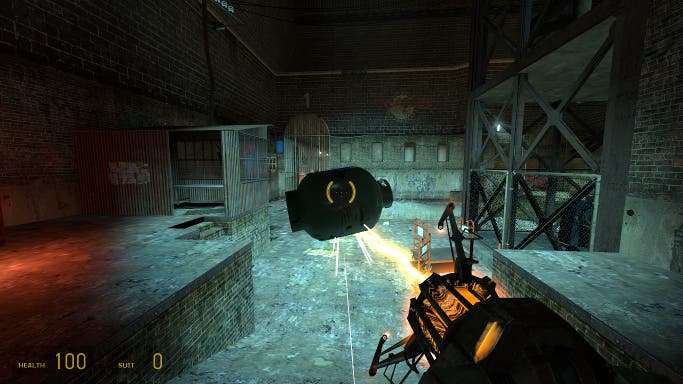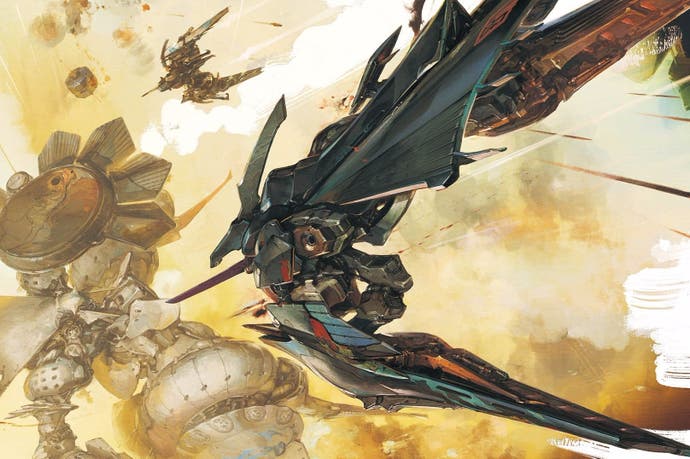Why I play video games
Or the special whatness that makes them so special.
I chose to be a doctor for lots of reasons. Some of them good! None of them to do with improved marriage prospects (I am only half Asian). None of them very sexy either, mind. If medical school was X-Factor, I wouldn't be picked to tell my life story in the crowd. I don't have a dead nan who always believed in my ability to take blood pressure or anything.
But I've been thinking about it, and I reckon a good part of why I chose medicine was because I played video games. And I don't mean in the I-Wanna-Be-Like-Holby-City-When-I'm-Older sense; I can tell the difference between playing Dr Mario and actual medical practice (you can see the pixels on the Dr Mario pills). I don't even mean it in some tenuous proof-of-hand-eye-co-ordination way, to be shoehorned into a Personal Statement.
I mean it in an actual, proper way that I believe has affected me. I'd say profoundly, but you'd laugh, so I'll save it for the end by which point you might agree. For now I'll just state the obvious, that video games - as I've known them growing up - are pretty dependent on agency. On the fun of producing actions that cause effects.
Sometimes spectacularly so, like the slow-motion swell of an Ikaruga boss explosion. Or the cherry-tomato burst of a Resident Evil headshot. Sometimes it's less immediate - like an end-of-level score tally, with its multiplying cascade of high-score riches. But most times it's hard to even tell, to know whether the fun is in the agency, its feedback, or that resulting sense of accomplishment.

Because often it's enough to just bounce about on the rubbery plumpness of Rayman's Inflatable Island, or run around Kokiri forest slicing apart its wooden signs at different angles. Sure. there's no discernible purpose or reward for doing so, in terms of points or prizes. But It'd be wrong to say that this meant the game was somehow indifferent to all this playful experimentation (technical term - 'pissing about'), because games are crafted and constructed things, every bounce or slice a conscious, coded choice by an actual person (or work experience student).
The Whatness
Now, I'm not sure what the meaning of gaming is, but I'm pretty sure it's not just in the achievement, or the overcoming of challenges. A lot is in the playing out, in exercising agency amongst these designed, intended things. Think of the deep satisfaction of using Half-Life 2's gravity gun to break every single crate in the room - surely as much an engagement with its 'meaning' as noticing the crumbling detail of its dystopia. Stephen Fry said that LSD "reveals the whatness of things, their quiddity, their essence", saying that "the wateriness of water is suddenly revealed to you, the carpetness of carpets, the woodness of wood, the yellowness of yellow, the fingernailness of fingernails, the allness of all, the nothingness of all, the allness of nothing". He goes on to say that music gives him access to all these essences, without the social and financial cost of LSD, nor its propensity to make someone say Wow! all the time (amongst the drug's "most distressing and least endearing" side effects, apparently).
Now I've never taken LSD nor any of its shady siblings (I don't think that time in an Islamabad oxygen bar counts), but I know that referencing Stephen Fry and drugs is a good way to sneakily introduce the word 'Quiddity' into an article, meaning the 'Whatness' of things. Gotcha! And in An Ode Less Travelled he uses it to refer to the potential of poetry, its ability to somehow convey a thing's whatness, and not just describe or depict it.
But isn't a lot of gaming sort-of a celebration of whatness too, whether physics, or lighting, or otherwise? Certainly that thrill of playing with in-game light switches (OMG The Shadows!!!) or clambering over mangy walls in Dishonoured (OMG The Heftiness!!!) suggest that gaming is all about the whatness and, uniquely, our interactions with it. You'd think we didn't have lights or mangy walls in real life. But in taking things out of the overwhelming infinity-ness of Real Life, and focussing on them as part of a game's limited set of rules, games can slice off a bit of whatness and let us play with it. It's a sort of examination of our relationship with these whatni (the plural for whatness which I just made up); the Quiddity-plus-us.
Putting The Whatness In Your Mouth
But one thing I don't think games are 'about', particularly, is detached existential pondering or even (whisper it) narrative, in the usual sense. I mean they can ask you to ponder, to pay attention to the environments in The Last of Us and see the traces of stories in the debris - the footprints left by fear. And games can often prompting insightful and illuminating thoughts after the fact (see: this article). But that sense of player presence and potential is the main event; it's not quite the same as film or literature to which games are (too) often compared.
In some ways games are a bit more like dancing, or sport. Even the ones that aren't about dancing or sport. Because isn't part of dancing's fun the act of taking the impossible, indescribable whatni of music and giving them some physical outlet, some jiggy two-step catharsis? A sort of transaction with - and acceptance of - the incredible otherness of it? Just ask Zorba the Greek from.. well, Zorba the Greek, who felt some things were best communicated by dancing full stop.

Or ask the mountain climber, for whom a craggy, cloud-shrouded vista is somehow too sublime, a beauty in need of earthing through contact and conquest -via sweaty Gore-Tex and the crack of an ice-axe.
Video games often present moody vistas too, as well as all sorts of other aesthetics; abstract, neon, pixelated, chip-tuned, unreal-engine-lit and more. And I think gameplay, even if just in the convincing footfalls and screen-shake as you run around a Mirror's Edge rooftop, is a way of getting leverage on the aesthetic, making it mentally digestible through contact and consequence - like a child putting everything into its mouth to understand it on some existential, salivary level.
In his article 'Catastrophe Games', Christian Donlan talks about the values of gaming. And as you can see I think video games really value a sense of presence, and agency. And when I was rejected by Oxford to study PPP (basically scuppering my chances of living a life of rooftop adventures like Lyra in the Northern Lights), I had a - very - short think and settled intuitively on something obviously practical, tangible and with clear effect. Something where you could recognise the wheezy high notes of forced air through the inflammatory clasp of an asthma attack, and give 5mg of Nebulised Salbutamol to break it.
If I could do that Simba-Mufasa thing, talk to my elders in the clouds above Birmingham, I'm sure they'd be confused but content. Happy that a vague guilt of not suffering their immigrant hardships, or fighting in any war, was somehow intensified by video gaming's (strangely self-defeating) reverence of practical agency, which eventually resulted in me becoming a doctor.
Putting Society In Your Mouth
But that's just level one, of course. Akin to the insecure app-swiping hipster donning his lumberjack shirt and beard - but a bit more Life-y. The deeper link isn't in the hands-on fun of performing rectal exams, or the bone-on-bone scraping satisfaction of re-aligning a distal radius fracture. Medicine gave me a sense of being an agent in society. Just like video games! In which a community is yours for the interacting, for the talking-to-and-helping-with-their-lost-puppy-ing (see: Zelda). Or I suppose even for the meddling (see: GTA). If that modern, urban alienation is the whatness in question - staring out a silent bus at people you'd rather like to have contact with, as some part in their story - then being a doctor is like my dancing. It lets me be Link or Ameratasu, helping the village with their pathologies and plights. It sounds like just a poor analogy, but it occurs to me so often I think it's closer to a perspective, and one informed by gaming at that.
Sure, maybe I'm just framing my thoughts in video game examples, but it's how I think, my go-to mental vocabulary. And that itself is important, because the choice of framing is itself important (just ask my mum), and sometimes it changes what you see through it.
You know, I used to have this other odd hang-up when younger, when I had the luxury of taking games and film and books a little too seriously. I didn't like that they'd engross you in their worlds, their realities of select rules and values - presented with a convincing authority of truth - but be mutually exclusive. If I was young now I'd probably wonder how Life is Strange's affectionate, mundane suburbia could be reconciled with, say, Final Fantasy's fantastical adventurism.
But I'd feel a bit better that in both realities; health and the care of it was probably an accepted thing. And sometimes, (this is silly and so please keep it secret) I conjure to my mind a specific image of Solid Snake in a field in Metal Gear Solid 3, as a way of almost validating medicine to myself. My gaming talisman. Because if concerns of health are good enough for the glamorous pseudo-reality of Snake, then they're good enough for me.
Spitting It All Out Of Your Mouth And Having Enough With The Mouth Analogy In General
Partly, I think it's because matters of medicine don't so much reconcile different styles or views, but can also outright undercut them. Self-importantly brandishing The Gravity Of Illness, to set things into a primal order, one that isn't concerned with queries of quiddity, or any of the rest.
Medicine is awesome, don't get me wrong, and I feel genuinely privileged to be a part of it. It's also difficult in lots of ways. But it's unambiguous in its mission: health is its goal, poor health isn't, and either way it's of Universal Undeniable Importance.
Which is wrong, really. Or at least, not the only right. Because you can't just live your life in a state of self-imposed emergency and immediacy, gold-standard medical guidelines and split-second A&E shift agency. Not if it's partly to avoid the harder, less clear-cut agency, the tricky middle ground of navigating the world in calm seas and still having a story to tell.
My point is that video games had an effect on me, a profound one; in all sorts of ways I'm not sure we realise yet as a community, nor even have the right phrases for. All sorts of small course changes that - given long enough - can lead to wholly different places: I'm a doctor now, and I'm sure part of that is down to my childhood gaming. Because the framing is important, and sometimes it changes what you see through it. Sometimes you can get it wrong.


